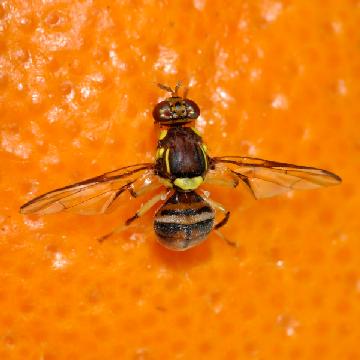Projets
TEPHRIFADE
Fast detection methods for quarantine Tephritidae
Considering the economic and ecological impact of the Tephritidae family worldwide and the importance of correct identification of detected Tephritidae to prevent any possible outbreak, we will address the following questions:
- What diagnostic methods for Tephritidae genera and species do exist?
- What are the most suitable detection methods for individuals of the Tephritidae family?
- How can best practice diagnostic protocols be exchanged between Euphresco partners and European Reference Labs in entomology?
- How to validate and implement the best methods in different laboratories and harmonise diagnostic protocols and guidelines?
- What are the available DNA sequences for the species belonging to the Tephritidae family? What are the gaps?
- How can we fill in the gaps identified?
Considering the economic and ecological impact of the Tephritidae family worldwide and the importance of correct identification of detected Tephritidae to prevent any possible outbreak, we will address the following questions:
- What diagnostic methods for Tephritidae genera and species do exist?
- What are the most suitable detection methods for individuals of the Tephritidae family?
- How can best practice diagnostic protocols be exchanged between Euphresco partners and European Reference Labs in entomology?
- How to validate and implement the best methods in different laboratories and harmonise diagnostic protocols and guidelines?
- What are the available DNA sequences for the species belonging to the Tephritidae family? What are the gaps?
- How can we fill in the gaps identified?
Investigateur principal:
Dates:
2022 2024Collaborateurs:
- Marc De Meyer
- Annelies Kayenbergh
Partenaires externes:
Negin Ebrahimi (ILVO)Wannes Dermaux (ILVO)
Johan Witters (ILVO)
Tim Beliën (PCFruit)
